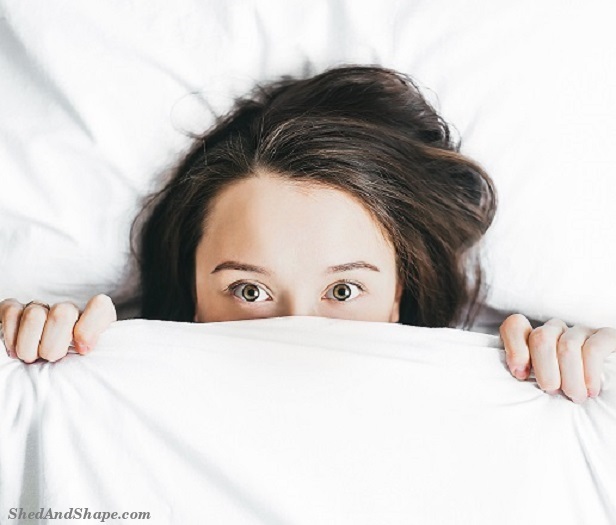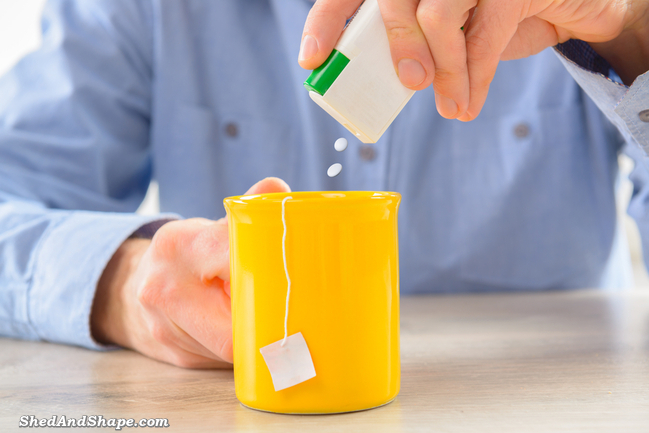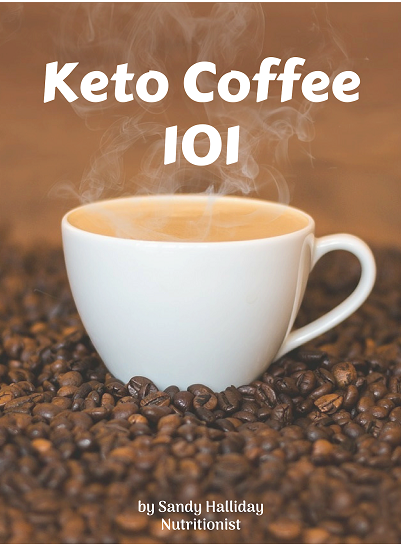Keto insomnia. Is there such a thing? Many people complain of it when they first start the keto diet but it’s by no means certain that they actually have insomnia.
One small study showed that participants experienced decreased REM and increased slow-wave sleep when following a keto diet. Decreased REM sleep can contribute to the feeling that you have not slept but the study showed that total sleep was not affected.
Several other studies reach the same conclusion. According to Mark Sisson there is no real evidence that keto does in fact cause insomnia.
The majority of people say they sleep better while following a keto diet. Long term the keto diet can result in deeper sleep and even the need for less sleep.
Luckily, there are things that you can do to fix keto insomnia if you are unlucky enough to suffer. So let’s take a look at how keto can affect your sleep to hopefully understand how this can be fixed.
What Is Insomnia?
Insomnia is a common sleep disorder affecting millions of people around the world. It refers to the inability to fall asleep and can also lead to interrupted sleep.
The National Sleep Foundation has reported that about 30 – 40 percent of American adults are suffering from insomnia. Around 10 – 15 percent of them have been diagnosed with chronic insomnia.
According to Dr. Mark Mahowald, director of the Minnesota Regional Sleep Disorders Center at Hennepin County Medical Center,
“Insomnia refers to the inability to get the amount of sleep you as an individual need to wake up feeling rested.”
The effect of insomnia can be devastating. Not getting enough sleep can make one feel lethargic which could ultimately lead to anxiety disorders. Some studies also link insomnia to some chronic diseases.
Your brain detoxifies itself at night when you are asleep to it’s vitally important to sleep and at the proper time.
There are many possible causes of insomnia and drastically changing your diet could be one of them, which may be the reason behind the keto insomnia.
Why Keto Dieters Suffer from Insomnia?
There are many possible reasons behind keto insomnia and here are some of them:
Fewer carbs could mean less sleep – you’ve probably experienced feeling sleepy after gorging on a lot of carbs. Since you’ve drastically lessened your carb consumption, then your body will have a hard time making you sleep as well.
Melatonin is the hormone that is normally produced at night when it gets dark. It is produced from serotonin, a neurotransmitter (brain chemical), which in turn is produced from the amino acid tryptophan which you get from your diet.
The food that you eat on keto contains plenty of tryptophan but lower carbs means less insulin which is needed to convert tryptophan to serotonin and then on to melatonin.
Now that the melatonin production is lessened, you could have a hard time sleeping.
Caffeine – The majority following a ketogenic diet love their keto coffee. For some people though caffeine, which is a stimulant, can cause insomnia especially if taken in the afternoon or evening.
One way it does this is by blocking the action of adenosine, one of your body’s natural sleep-inducing agent.
It also disturbs the body’s circadian rhythm, the sleep-wake cycle that governs so many functions of our bodies.
Another problem can be the rate at which you clear caffeine from your body via your liver which depends on your liver detoxification enzymes.
Some people with certain genes clear caffeine more slowly and suffer side effects like heart palpitations as well as insomnia.
Related reading: Can Keto Coffee Help You Lose Weight?
Nicotine – Smokers often suffer with insomnia because nicotine is a stimulant. There is also evidence that smoking can contribute to snoring and sleep apnea which disturbs sleep.
The irritants from cigarettes may result in swelling of the airway, especially the soft tissues lining the nose and throat causing the snoring and sleep apnea.
Alcohol – While a bedtime night cap may be relaxing to start with it can cause you to wake up later in the night.
Alcohol taken in the evening suppresses melatonin, the hormone mentioned above, which regulates the sleep-wake cycles.
Alcohol will also make it more difficult for you to reach REM sleep, the deep sleep that you need to feel as though you’ve had a good night’s sleep and wake refreshed.
You will see how an alcoholic drink combined with a coffee late in the evening may cause disturbed sleep.
The sleep disruption from alcohol can cause tiredness, fatigue, irritability, and difficulty concentrating the next day which creates a desire for coffee to help you stay awake and focus.
You can see now how the vicious cycle begins.
Related reading: What Can You Drink on a Keto Diet?
Histamine – histamine could be another reason behind the keto insomnia. Histamine is a chemical made in your body and is also found in food.
It has a number of functions in the body and one is the regulation of the cycle of sleeping and waking.
Generally histamine should not cause a problem but some people can have problems in breaking it down. They may have a slow or non-functioning diamine oxidase enzyme
(DAO) which breaks down histamine from food.
Or, they could have a deficiency of histamine-N-methyltransferase (HNMT) an enzyme that breaks down histamine produced by cells.
In either of these cases histamine could build up and result in a disturbed sleep wake cycle. High histamine can cause heart pounding which can disturb sleep. The answer to this is to eat a low histamine diet.
On a keto diet the foods that are high in histamine or liberate histamine from cells are:
aged meat, slow cooked meats, aged cheese, bacon, canned fish, shellfish, fish unless very fresh, eggs, avocados, nuts, coffee, black tea, green tea (2 small cups maybe alright for some) bone broth, nuts (macadamia nuts may be ok), seeds (pumpkin, sesame and sunflower may be tolerated in small amounts) citrus fruit, strawberries, raspberries, eggplant, tomatoes, spinach, fermented foods (yogurt, buttermilk, sour cream, kefir) and alcohol.
Quite a daunting list isn’t it? Different people do react differently to these foods so you may be fine on some that cause a problem in others.
It may not seem at first glance that there is anything left to eat but it can be managed and there are ways of overcoming the problem such as taking a supplement of DAO or a natural anti-histamine like quercetin.
Mineral deficiency – when your body reaches the state of ketosis, your body could end up losing important minerals, including magnesium, potassium, and calcium.
When you’re deficient in these minerals, your pulse rate could be elevated, and your blood pressure could be raised. This could make you feel restless and anxious, which is why you may be having a hard time sleeping.
Magnesium is a calming mineral and deficiency leads to chronic insomnia which is one of the main symptoms. Sleep is usually agitated with frequent awakenings in the night.
According to Medical News Today Dr William Sears states:
Calcium helps the brain use the amino acid tryptophan to manufacture the sleep-inducing substance melatonin. This explains why dairy products, which contain both tryptophan and calcium, are one of the top sleep-inducing foods.
How to Fix Keto Insomnia
Now that we know the possible reasons behind keto insomnia, here’s what you can do to minimize or fix this problem:
Get enough nutrients – as mentioned above, the lack of essential minerals in your body could be the reason why you’re having a hard time sleeping.
Therefore, the first thing that you can do to address your keto insomnia is to eat enough foods that contain essential nutrients that your body needs.
If possible, supplement your diet with products that can provide you with enough magnesium, potassium, and other essential vitamins and minerals.
Reduce or avoid caffeine and nicotine – as we’ve seen caffeine and nicotine can interrupt sleep so it would pay to do a trial avoidance to see if either of these is a problem for you.
Avoid alcohol in the evening – If you tend to drink in the evenings fixing your insomnia could be as simple as avoiding it for a while to see if it helps.
Rule out histamine overload – If you suffer with any bowel problem that seems a problem to solve then it is worth trying a low histamine diet and get a test to see if you have a slow or underfunctioning DAO enzyme.
Set the right environment during bedtime – your keto diet may not be the only reason behind your insomnia. Several other factors may have contributed to this disorder.
Blue light emitted by TV’s, cell phones, computers and tablets prevents the production of melatonin so make sure you stop using them at least an hour or longer before you hope to go to sleep.
Some people use a blue light blocker on their phones and computers. Having lights dimmed in the evenings can help too.
Always try to set a proper mindset and environment when bedtime comes. Forget about your problems and put away those things that could distract your sleep.
For some, playing soothing music or doing guided relaxation might help them to fall asleep easily.
Don’t exercise late at night – getting some exercise is also important when you’re on keto and it can help you to achieve your weight loss goals faster. But avoid exercising late at night because this will only boost your energy level and will keep you alert and awake even when it’s time to sleep.
Conclusion
Keto insomnia is a problem that some keto dieters seem to suffer from, especially those who are just starting in the diet.
But remember that keto may not be the only reason behind this problem. Aside from the lack of essential minerals, there are various other factors that contribute to your lack of sleep and your keto diet may have nothing to do with it.
Remember, not getting enough sleep could lead to serious health problems and anxiety disorder.










